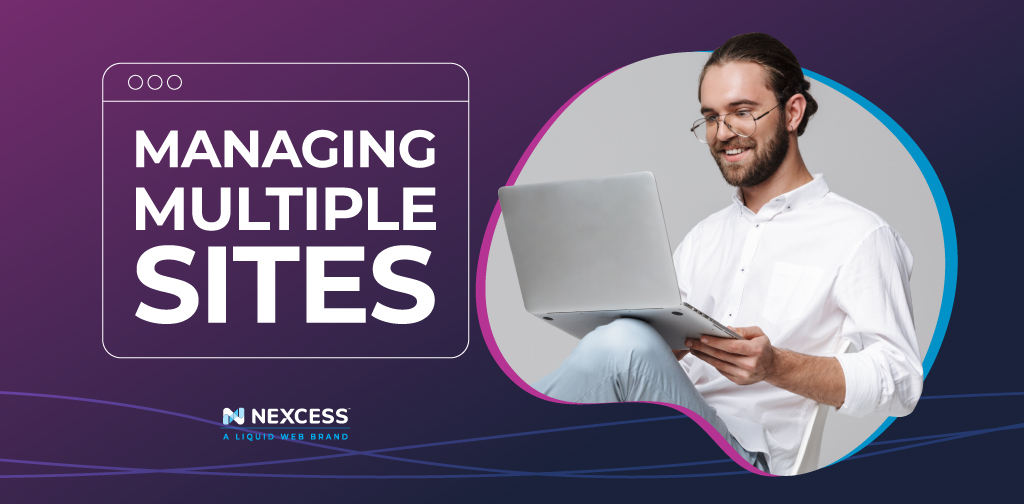Jane Austen said it best. It’s a truth universally acknowledged that a business owner in possession of many websites must be in want of a useful tool for managing multiple sites.
OK, maybe Jane said something about a man with a fortune needing a wife. But isn’t running a business like a marriage? It takes time to build, it can be expensive at the start, and the first year is challenging. But with good communication, hard work, and the right resources, you’re stronger for it.
So if you’re struggling with the stress of finding a multisite CMS to help you run your websites, you need a strategy and tools that will take you back to the honeymoon period of your business.
Managing Multiple Sites
You can use two strategies when managing multiple sites: the DevOps strategy and the tool strategy. Both are great options, but depending on your time and resources, one may be more realistic than the other.
DevOps Strategy
DevOps combines methods and practices to improve a company’s ability to deliver a product. The Dev comes from the software developer, and the Ops comes from operations, like tech support and IT. The goal of a DevOps strategy is to shorten the development cycle and standardize the process across websites and applications.
On paper, it’s pretty straightforward. But, putting a DevOps strategy into practice takes a lot of time and resources. And, if you run a small business or are a company of one, implementing a DevOps strategy for managing multiple websites can take time away from all other tasks in your business. A DevOps strategy works best if you have a dedicated team for developing, testing, deploying, and monitoring the websites.
Tool Strategy
There are tons of tools to help you manage all your websites. And the best part is they work with multiple WordPress sites.
Tools to consider include:
- Solid Central. Manage anywhere from 5 to 100 sites with Solid Central. This popular option makes it easy to manage multiple WordPress sites from one dashboard. It starts at $69/month.
- MainWP. This free, open source tool comes with an intuitive dashboard. You get one-click access to all your sites and notifications about updates, and once you’ve stored each site’s login credentials in MainWP, you’re good to go.
- Manage WP. This popular tool enables you to carry out basic administrative tasks like updates, backups, and adding new content to your sites. And the best part is Manage WP offers 24/7 customer support.
- InfiniteWP. If you’re an agency, developer, or freelancer, InfiniteWP was designed with you in mind. It offers a centralized admin panel and free backup and restore services.
- WP Remote. WP Remote lets you monitor an unlimited number of websites for free. You can perform updates, manage users, and there’s a site performance checker.
- CMS Commander. If your sites are all about content marketing, you’ll love CMS Commander’s dashboard, which gives you all your site’s important traffic metrics in one place. You can also group sites by client, and it even integrates with popular services like Amazon and YouTube to pull in fresh content for bulk posting.
- Jetpack. You’ve probably heard of Jetpack before, but did you know that the plugin allows sites under the same management to communicate on the web version of WordPress? And if you upgrade to the paid plan, you can have automated backups and unlimited site storage too.
With so many tools available, it can be challenging to know which to use. Should you install a plugin? Should you try Drupal multiple sites? It’s essential to pick the tools that work for you and your websites.
Why You Need Website Management Tools
Websites are necessary for doing business. They show what you have to offer and help you build trust before you even meet your customer. But if managing websites takes time away from other areas of your business, then it’s time to use a website management tool to help you maximize your online presence without wasting your time.
If you’re managing multiple sites, a simple five-minute task for each site can add up quickly. And if you’re also creating content for those sites, your workweek is probably uncomfortably full.
In the past, business owners had to learn to code or hire a developer. No code solutions like WordPress make it easy for you to design a website and manage your content. Managed web hosting allows you to run your site without worrying about security or site speeds. And social media scheduling tools allow you to see all your social profiles in one place, so you know exactly what content is going out and when.
There is a lot that goes into successfully running a website for a business. Taking advantage of the available tools and resources can make it easier.
Nexcess Can Help
Whether you’re looking for tools to keep your plugins updated or developer tools to keep your site running smoothly and looking great, Nexcess can help. Our managed WordPress hosting includes automatic updates, malware monitoring, and an SSL certificate. You’ll be able to run your site however you’d like without worrying about security, updates, or site speed.
Plus, a managed WordPress hosting plan includes the Solid Security plugin to keep your site constantly protected. And Solid Central allows you to manage multiple WordPress sites from one dashboard.
But the best part is the peace of mind that comes with knowing that you have access to 24/7 support. So no matter where you are or when it happens, Nexcess is there to keep your site online, so you don’t miss out on business.
You can expect the same from our sibling brand Liquid Web, as well. They offer additional WordPress hosting options on world-class infrastructure.
Check out Nexcess fully managed WordPress hosting today to see how we can help you.

